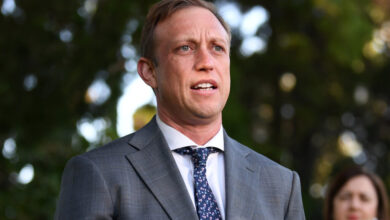By Kimberly Hayes Taylor, NNPA Newswire Contributor
As an automotive C-suite level executive, Bennie Fowler became a business leader to count on when corporations in crisis were hemorrhaging money and losing loyal customers because of questionable quality.
During the 2008 economic crisis, Fowler helped lead Ford Motor Company’s turnaround to profitability when the company was losing billions of dollars per year and facing bankruptcy. As chief operating officer, he had proven his abilities while navigating a successful upswing at the $10 billion British Jaguar & Land Rover operation when it faced stalled production, poor product quality, and was projected to lose $250 million.
Fowler believes his business acumen and the assuredness he needed to beat insurmountable odds was sparked by his humble beginnings of selling baskets of eggs door-to-door and working as a janitor while growing up in Augusta, Georgia. It was this early introduction to the work world that motivated him to perform at a high level in education followed by the lessons learned in a variety of career assignments.
Now, a supply chain improvement specialist who helps Fortune 500 companies boost product quality, productivity and financial performance, Fowler has a clear focus on what it takes to be successful in the C-suite and says it requires more than a winning attitude and determination.
Professionals who see themselves among the C-suite ranks must possess a deep set of business skills and discipline. Fowler’s custom C-suite curriculum is a focused and disciplined program that provides direction and wisdom for professionals who aspire to reach the top tier of companies.
His programs are designed to help professionals understand the fundamentals to become a CEO (chief executive officer), usually the top position at a company or corporation—the person who signs off on most important decisions— and other C-suite roles such as CFO (chief financial officer) who guides business strategy, risk management, and financial analysis and opportunities; CIO (chief information officer) who governs information technology infrastructure and manages the company’s information technology; and COO (chief operating officer) is a senior executive tasked with overseeing the day-to-day administrative and operational functions of a business and typically reports directly to the CEO.
During the decades he spent in leadership roles at General Motors, Chrysler, and Ford, Fowler established a reputation for developing and executing processes to improve quality and help the companies turnaround their performance.
Fowler says that no matter how great his successes, he never achieved a single goal by himself. Each effort required teamwork.
“That’s why understanding leadership and teambuilding is critically important at the top,” he says.
One of the keys to building a high performing team is to quickly get an understanding of team members’ personal goals and create a specific plan to achieve them. Team members also need to understand the company’s goals to ensure their focus is in alignment.
The best leaders realize that they need people, and that people will be willing to go the extra mile for them when they display a genuine interest in helping them achieve their professional and family goals.
“One of the best qualities a leader can have is credibility,” he says. “Credibility comes from sharing experiences and abilities with the team to make them better. It is also the way you share what you’ve learned.”
Fowler is known for being a sensei, the Japanese title for a teacher or master, and he possesses the ability to make complex subjects seem simple.
Much like the head coach of a professional football team who repeatedly analyzes an opposing team’s defense, noting strengths and weaknesses, Fowler has meticulously studied the skills and capabilities required to become a C-suite leader.
He says every CEO must be able to review external and internal environments and understand the performance gap for all key stakeholders, especially shareholders.
Then, the CEO must be able to work with teams to craft a compelling vision, comprehensive strategy, and plan, and set up a reliable process to ensure execution. A CEO also must have a strategy to develop talent to ensure success.
The talent development strategy is also a critical success factor for winning, he says. So is building an executive team that owns technical excellence, working together with transparency and ethics.
Finally, professionals who want to effectively position themselves for the C-Suite position must gain knowledge, experience, and confidence by experiencing successes amid adverse circumstances such as turning around profit losses, correcting major production problems, and improving product quality.
Fowler successfully faced those challenges.
The CEO position was more volatile than ever in 2019, when a record number of chief executives left their posts, according to a report from career tracking firm Challenger, Gray and Christmas.
Nearly 1,500 CEOs left their posts between January and November 2019, a 12% increase from the same time period in 2018. That’s also significantly more than the 1,100 executives who left their posts in 2008, the height of the Great Recession.
It means an unprecedented opportunity for professionals who want to reach the executive levels of leadership in companies and corporations.
Fowler says, given the opportunity, he would take on another corporate turnaround mission. With his consulting firm, Bennie Fowler LLC, he helps companies improve supply chain management.
As a turnaround leader, Fowler was able to come in, pick up pieces and make things right when his companies were failing to perform. As a change agent, he was trusted to solve problems when there was no obvious solution. As a stabilizer, he understood what to preserve during troubled times and what to eliminate.
He says people who want into C-suite ranks should have the ability to quickly assess the current business situation and demonstrate that they can get results in high-stakes environments. African Americans need to be overly prepared with unmatched qualifications.
Fowler concluded, “I always thought if there was a job that had to be done, and there were 10 people [competing for the job], why shouldn’t it be me? God has blessed me with the talents that I have, I try to use them for the benefit of myself, my family and everybody around me.”
Kimberly Hayes Taylor is a freelance journalist in Detroit.




